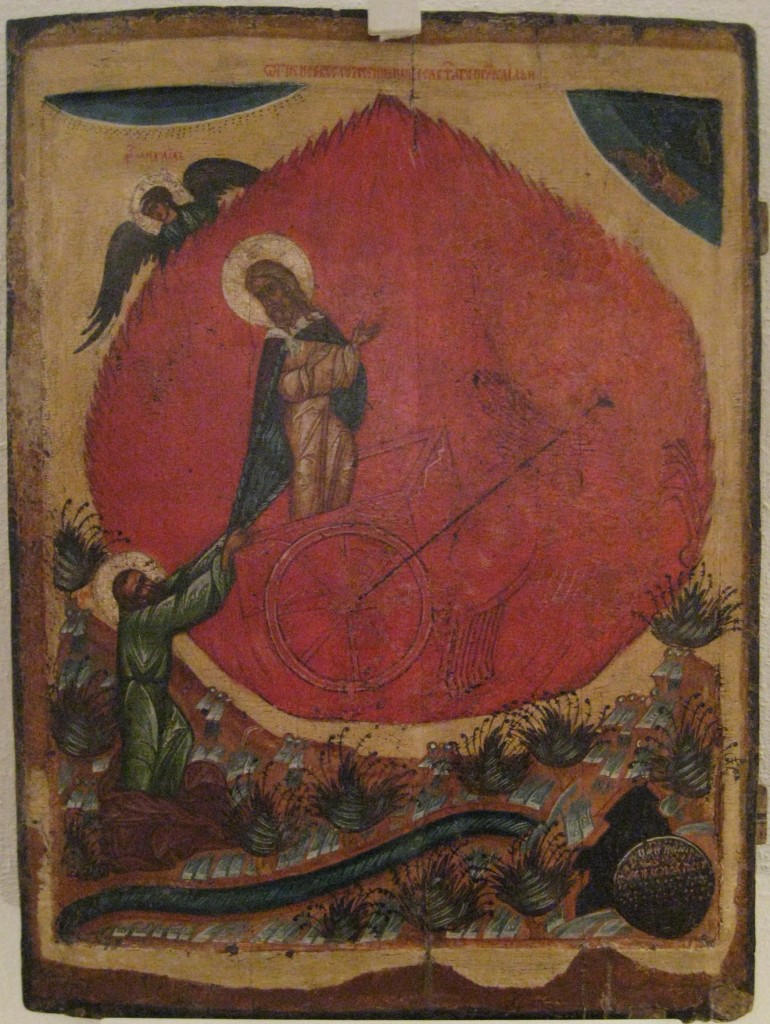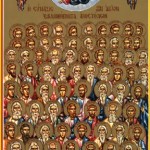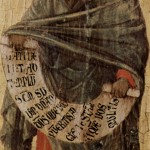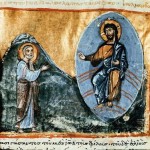
2 Kings 2:1-2, 6-14 and/or 1 Kings 19:15-16, 19-21
What It’s About: These are stories about Elijah and his relationship to Elisha. They are both about succession and the transmission of power and authority from one person to the next, and from one generation to the next. In the 2 Kings story, we see a very intentional, planned transition; the narrator tells us that Elijah is about to be taken up into heaven, and Elijah is aware that it is happening. Elisha picked up the mantle of the senior prophet, and found himself in possession of the trappings the previous prophet had possessed. In 1 Kings, we see the call story of Elisha, in which Elijah puts his mantle over the younger man and the younger man decides to follow the older.
What It’s Really About: It’s interesting to think about the structure of prophecy in light of these stories. In other words, these stories tell us something about prophecy in the Hebrew Bible that confounds modern expectations, and causes us to think about the institution of prophecy. In an age where predictions of Nostradamus adorn tabloids in supermarket checkout lines, it’s tempting to think of “prophecy” as a synonym for “telling the future.” But that was really a minor part, if a part at all, of what prophets did in the Hebrew Bible. They weren’t in the business of telling the future, except where it was in the service of something else. Rather, prophets were a kind of hybrid of political prognosticators and moral and religious bellwethers. Their job was to critique power and culture, and to warn of the consequences of refusing to change. Because of that job description, it was important for prophets to maintain distance from power structures–to not be owned by the monarchy, for example. In these stories, we see some evidence of the maintenance of that independence. Succession from one prophet to the next isn’t based on politics or enmeshed in court intrigue; Elijah consults only God in the naming of his successor. That kind of independence was critical as prophets went about their work.
What It’s Not About: It’s not about death! There are a couple of characters in the tradition whose demise does not appear to have been…normal. Enoch “walked with God, and he was no more, for God took him,” which has been interpreted as Enoch not dying, but being taken up to heaven by God. (It has also made Enoch a popular figure for apocalyptic expectation, like Elijah). In Elijah’s case, things are a bit more specific and more dramatic: Elijah is picked up in a kind of heavenly limo service, on a chariot of fire with a whirlwind to boot. These non-death deaths obviously made these two figure stand out, and when Jewish apocalypticism ramped up around the turn of the millennium, both Enoch and Elijah became important figures in it. This story of Elijah’s going to heaven is part of the reason why.
Maybe You Should Think About: How did Hebrew prophecy protect its own ability to critique power? How did it guard its independence from structures like temple and monarchy? And does that independence have anything to say to us today?
What It’s About: Here we have one of the more well-known passages from Paul, his discourse on the “fruits of the spirit.” These are in contrast to the “works of the flesh,” which are to be avoided and shunned. The way the lectionary selects the text (skipping verses 2-12), this is really a text about continence…it is a passage that is encouraging people to deny bodily desires and focus on spirit-produced goods. But skipping verses 2-12 removes some important context.
What It’s Really About: This passage is really about the same thing most of Galatians is about: Paul’s anger at being challenged by “another gospel” that others had begun preaching in Galatia after he left. The crux of his disagreement had to do with the Jewish law, and to what degree the Galatians (who were gentiles) needed to follow that law. (Cliff’s notes version: Paul thought not at all, and his opponents seem to have thought yes). Verses 2-12 of chapter 5 have to do with circumcision, one of the big sticking points in the debate he seems to have been having. Circumcision, as you can imagine, is one of the more difficult parts of the law for adult gentiles to keep; imagine an evangelist concluding his work and then asking the converts to line up for baptism over here and then some minor genital surgery over there. But Paul’s objections were deeper than that: he thought that gentiles keeping the law by being circumcised were rejecting the work of Jesus. (This wasn’t a rejection of circumcision per se; Paul still seems to have thought that it was completely appropriate for Jews. But gentiles weren’t Jews).
What It’s Not About: Read that way, Paul’s “fruits of the spirit” and “works of the flesh” take on new meaning. He isn’t rejecting the body and highlighting the spirit. This isn’t a call to self-abnegation or anything like that. Rather, this passage participates in something that’s characteristic of Paul’s engagement with gentiles: he thinks gentiles are by and large degenerates. Paul, as a Jew, shared a common Jewish stereotype of gentiles as licentious, promiscuous, drunken, and violent. You can see this stereotype come out in various “vice lists” across Paul’s writings. The Jewish law had served to temper human nature, most Jews felt, and gentiles were lawless and unmoored to any higher moral calling. So one of the things Paul thought gentiles ought to be getting out of their exposure to Jesus and their incorporation into God’s family was a correction of their base nature. But this didn’t come through the law, like it did for Jews. It was mediated by the spirit of God. That’s why Paul contrasts the works of the flesh to the fruits of the spirit in the way he does.
Maybe You Should Think About: What is it about the spirit that produces the fruits Paul describes? How does that work?
What It’s About: This is a pivotal moment in the gospel of Luke–the moment when Jesus “set his face” to Jerusalem and began his journey toward his death. This serves a kind of hinge for the gospel, after which everything moves inexorably toward its conclusion. This narrative inertia is so powerful that even when he passed near some Samaritans, the direction in which Jesus’ face was set (toward Jerusalem) meant that the Samaritans couldn’t receive him. Jesus had somewhere to be.
What It’s Really About: There are echoes of the Elijah story here. The language of “taken up” and the invocation of fire coming down from heaven are both references to Elijah’s story, and for savvy readers in antiquity they would have signaled that Jesus’ own death was approaching. And then, in verse 62, there is an allusion to the 1 Kings story of Elisha’s call to follow Elijah. The gospel is tracking with the Hebrew Bible here, playing on allusions to that story to create and mold expectations for its readers.
What It’s Not About: It’s not about calling down fire on your enemies! It’s amazing that, so far into their time with Jesus, this was the disciples’ first instinct when the Samaritans decided not to receive Jesus into their village. James and John wanted to destroy them for it! All we are told is that Jesus rebuked them, but it’s also a rebuke to those of us who wish destruction on our enemies today.
Maybe You Should Think About: Verses 57 through 62 are provocative and enigmatic. Together, they are three possible responses to Jesus. In every case, Jesus makes the response that the person gives more difficult. Even the one who says they will follow unconditionally gets a mild rebuke–there is no “there” there, where the Son of Man is going. There is no following, because there is no destination. This might be a whole other blog post, but it’s interesting to think about these sayings as a charter for the emerging church.












